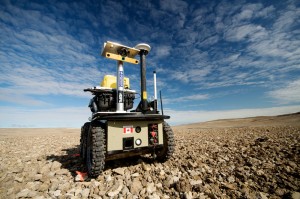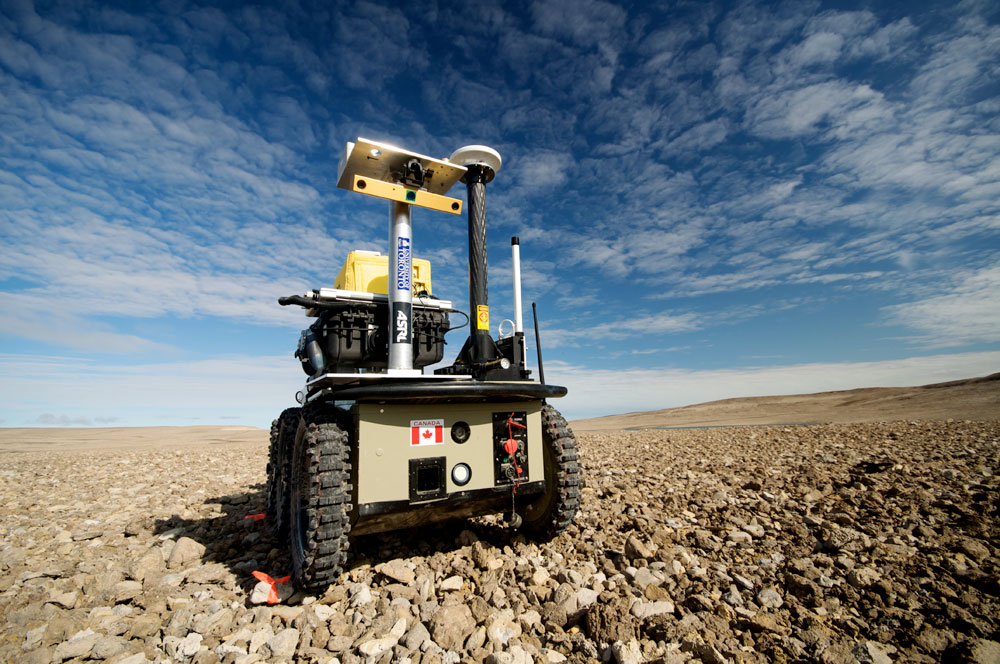By Stephanie Lepage and Brian Owens
General Science subject editors
On June 5th to 8th, science communicators will descend on the University of Toronto for the CSWA Annual Meeting. A detailed programme for this year’s conference can be found here, but here are a couple of can’t-miss events.
- Explore the worlds of satellites (of the outer space variety) and microsatellites (of the DNA variety) by touring the University of Toronto Institute for Aerospace Studies and Toronto Centre for Phenogenomics. Prepare for blast off the tour, by heading over to the Quirks & Quarks blog to read how space will be a busy place in 2014 and learn how the future International Space Station is threatened by the breakdown of US-Russia relations. If you’re more interested in life under a microscope than through a telescope, check out Neurorexia to see how small non-coding RNAs have been implicated in epigenetic inheritance of trauma in mice.

Rover designed at the University of Toronto Institute for Aerospace Studies, tested on Devon Island, Canadian Arctic (Photo: UTIAS).
- Find out how technology can help us live better. Panellist Aaron Wheeler (Bioanalytical Chemistry, University of Toronto) uses tiny microfluidics chips to solve big health problems and Angela Schoellig (University of Toronto Institute for Aerospace Studies) looks at how robots adapt to unpredictable environments and share this information with their peers. Want to learn more about how robots impact our lives? Check out the Journal of Unmanned Vehicle Systems, which was launched last year.
Be sure to keep an eye on the CSWA blog for some write-ups of conference highlights.
Meanwhile, on our own Science Borealis blog, we’re hosting a series of guest posts about invasive species written by members of the Nature Conservancy of Canada. Last week we had Dan Kraus on the ecological and economic costs of invasive species like the Zebra mussel, followed by Brian’s personal favourite, a list of recipes collected by Carly Dow so that hungry invasivores can do their part to bring down the numbers of invasive plants by eating them. Time to try some dandelion pancakes, or kudzu quiche!
Lastly, congratulations to this year’s CSWA Science in Society Awards! You can find links to their winning entries here.




